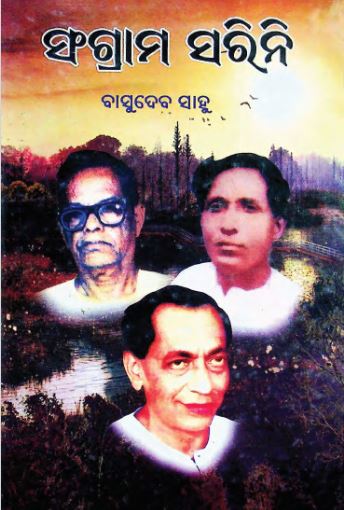Published in 2010, “Sangrama Sarini” by Basudeb Sahu is a compelling narrative that delves into the intricacies of human relationships, societal dynamics, and the perennial struggle for justice and compassion in a world marked by conflicts and complexities. This novel weaves together a tapestry of emotions, aspirations, and moral dilemmas, offering readers a poignant reflection on the interplay between individual choices and collective destinies.
“Sangrama Sarini” unfolds against the backdrop of a society grappling with deep-rooted social hierarchies, moral ambiguities, and ethical dilemmas. Basudeb Sahu’s novel navigates the lives of characters who find themselves entangled in the intricate web of societal expectations, familial obligations, and personal desires. The narrative unravels the layers of human nature, depicting moments of conflict, introspection, and transformation as individuals confront the tumultuous currents of social change and personal growth.
Central to “Sangrama Sarini” are the diverse characters whose lives intersect and intertwine, shaping the narrative arc of the novel. From the resilient protagonist grappling with inner turmoil to the enigmatic supporting characters harboring hidden truths, each individual in the novel contributes to the rich tapestry of human experiences and emotions. Basudeb Sahu skillfully portrays the complexities of human relationships, the depths of emotional bonds, and the struggles for identity and agency within the intricate social framework of the novel.
At its core, “Sangrama Sarini” explores themes of resilience, redemption, and the enduring quest for meaning and purpose in the face of adversity. Through the trials and tribulations faced by the characters, the novel delves into the transformative power of perseverance, forgiveness, and compassion in overcoming personal and societal challenges. Basudeb Sahu’s storytelling illuminates the pathways to redemption and reconciliation, offering a message of hope and renewal even amidst the turmoil of life’s battles.
The narrative of “Sangrama Sarini” serves as a mirror reflecting the complexities and contradictions of the society it portrays. Through nuanced character interactions, moral dilemmas, and ethical choices, the novel invites readers to engage with questions of justice, morality, and human agency in the face of societal pressures and personal convictions. Basudeb Sahu prompts readers to ponder the responsibilities of individuals towards society, the ethical dilemmas inherent in social dynamics, and the enduring quest for truth and justice in a world marked by shades of grey.
In essence, “Sangrama Sarini” by Basudeb Sahu is not merely a novel; it is a thought-provoking exploration of the human condition, societal dynamics, and the eternal struggle for integrity and compassion in a world fraught with challenges and conflicts. Through its vivid characters, intricate plotlines, and thematic depth, the novel captures the essence of human experiences, relationships, and dilemmas, resonating with readers as a poignant reflection on the intricacies of social life and the enduring quest for self-discovery and moral rectitude. “Sangrama Sarini” stands as a testament to the enduring power of storytelling to illuminate the human spirit, provoke reflection, and inspire empathy towards a world where individual choices and social destinies intertwine in a complex dance of triumphs and tribulations.
Books Info
| Books name | Sangrama Sarini/ସଂଗ୍ରାମ ସରିନାହିଁ |
| Author | Basudeb Sahu |
| No Of pages | 185 |
| Publisher | Agraduta |
| Publication | 2010 |
| Printed At | Tarini Offset |
| Distributor | NA |

